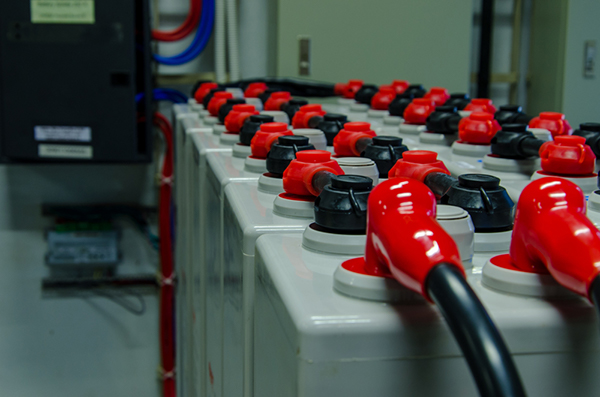Solar batteries work to enhance the effectiveness of your solar panels. In essence, they store the unused energy produced by solar panels during peak times, such as during a bright sunny day, and then distribute it when solar panels are ineffective, such as late in the day or nighttime. To put it plainly, solar batteries simply help make your solar panels work more effectively.
Will You Save Money Using Solar Batteries?
To answer this question, you have to first determine how your particular energy company charges for energy usage. States that utilize a net metering system will usually credit your utility bill for each and every kilowatt-hour (kWh) your solar energy sends back to the grid. You can then “cash out” these credits towards a bill when you need more electricity than your solar-plus-storage system is producing. If you are billed this way, you won’t notice a significant savings when installing a solar battery, because the savings you enjoy from your solar panel will not dramatically change. The grid is simply replaced by your solar battery. However, some electric utilities have begun to adjust the way they charge customers to make solar energy a more advantageous investment than when billed traditionally. If your utility company does the following, you will be able to see a savings with solar batteries:
- TOU Rates: If your utility company measures TOU rates, which is the per-kWh rate, it means you pay more for your electricity during peak hours. If your utility company does this, you will likely notice energy cost savings by allowing your solar storage system to boost your electricity during the costly peak hours, reducing the energy you use from the grid.
- Demand Charges: Another way you can save money using solar batteries is if your utility company passes on demand charges. For example, you are charged more based on your energy usage. Solar batteries will often allow you to avoid higher demand fees because you can tap into your energy storage system.
- Avoided Cost Savings: Some states give customers a credit for avoiding a cost rate surge. You won’t have to use as much per kWh energy when you use solar batteries. Therefore, if your utility company does this, you can maximize the value of the energy generated from your solar energy storage system.
You can also financially benefit from solar batteries by taking advantage of the investment tax credit (ITC), which allows you to deduct up to 30% the cost of your solar energy storage system from your federal taxes.
How Expensive Are Solar Batteries?
While this will vary some based on the state you live in and other factors, in general, solar batteries range from $5,000 to $7,000.
Will Solar Batteries Allow You to Go Off The Grid?
Keep in mind, a single solar battery cannot provide enough energy to operate a standard American home for more than a few days. They can; however, provide you with much-needed backup power in an emergency situation. In general, solar energy panels and batteries work in conjunction with the electricity grid not independently. Therefore, they will not allow you to go off-grid. To do this, requires a much greater monetary investment.
Solar batteries are an important element of effective solar energy production. Without them, your solar panels are much less effective. Therefore, they should be considered a must-get addition to any solar energy storage system.
Sources:
https://www.seia.org/initiatives/solar-investment-tax-credit-itc
https://www.energysage.com/solar/solar-energy-storage/what-do-solar-batteries-cost/
https://www.energysage.com/solar/solar-energy-storage/benefits-of-solar-batteries/

